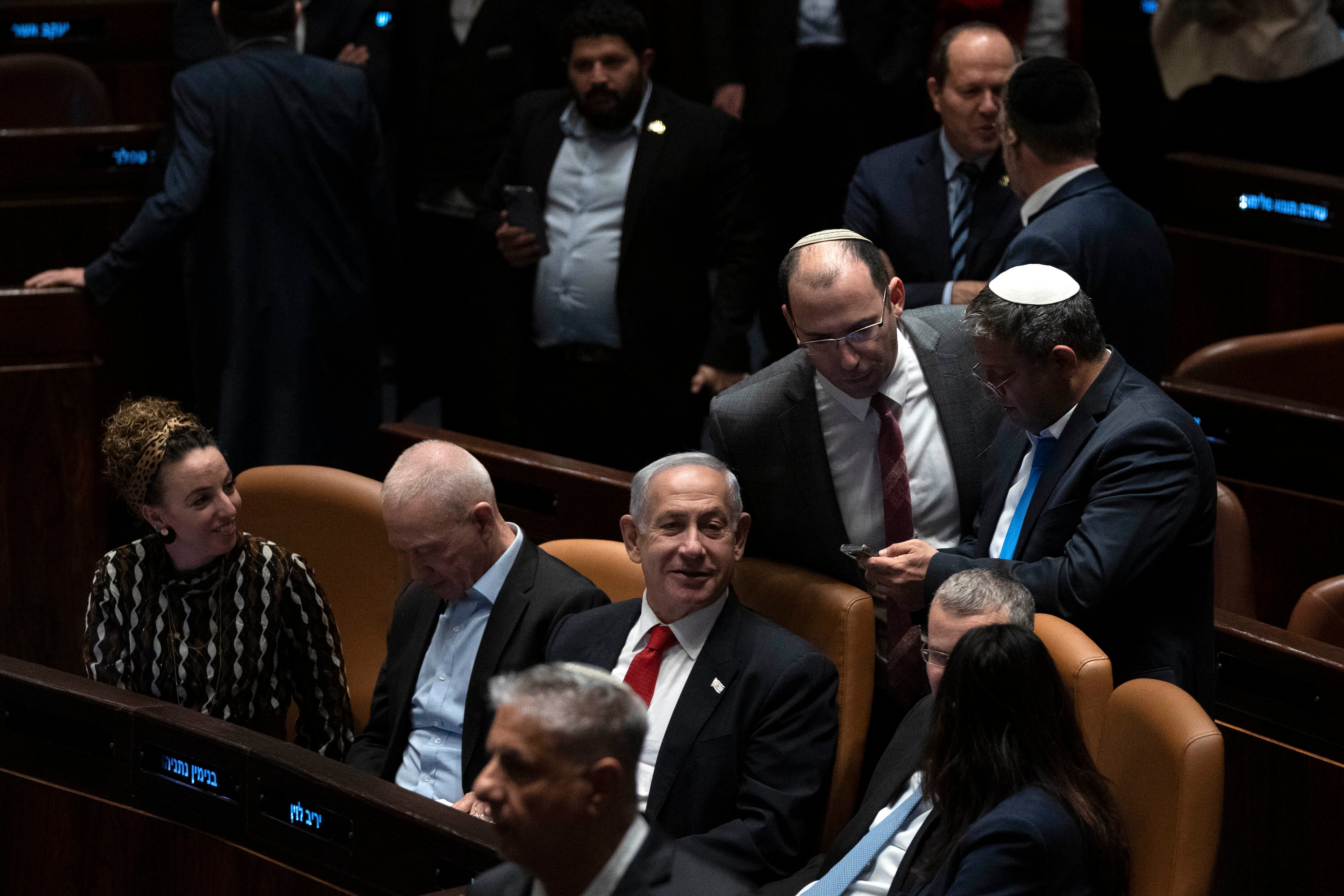Israel president pleads for unity after controversial legal changes: ‘Many are fearful’
Israel’s president has called on Prime Minister Benjamin Netanyahu’s coalition to seek dialogue and compromise after it pushed ahead with controversial judicial overhaul

Your support helps us to tell the story
From reproductive rights to climate change to Big Tech, The Independent is on the ground when the story is developing. Whether it's investigating the financials of Elon Musk's pro-Trump PAC or producing our latest documentary, 'The A Word', which shines a light on the American women fighting for reproductive rights, we know how important it is to parse out the facts from the messaging.
At such a critical moment in US history, we need reporters on the ground. Your donation allows us to keep sending journalists to speak to both sides of the story.
The Independent is trusted by Americans across the entire political spectrum. And unlike many other quality news outlets, we choose not to lock Americans out of our reporting and analysis with paywalls. We believe quality journalism should be available to everyone, paid for by those who can afford it.
Your support makes all the difference.Israel's president on Tuesday called on Prime Minister Benjamin Netanyahu’s coalition to seek dialogue and compromise after it pushed ahead with controversial judicial overhaul in a turbulent parliamentary session overnight.
Isaac Herzog said it was a “difficult morning” following the late night parliamentary vote that saw two contentious pieces of legislation — part of sweeping changes that have prompted vocal criticism in Israel and abroad — pass a preliminary hurdle.
Critics say the judicial overhaul underway will concentrate power in the hands of the ruling coalition in Israel's parliament, the Knesset, and erode the democratic system of checks and balances. Netanyahu and his allies insist the changes will better curb an overly powerful Supreme Court.
"Many citizens across Israeli society, many people who voted for the coalition, are fearful for national unity,” Herzog said at a conference organized by the Yedioth Ahronoth newspaper. He urged Netanyahu and his allies to enable dialogue to reach a consensus on judiciary reform.
Herzog's remarks came the morning after tens of thousands of Israelis protested outside the parliament ahead of the vote, the second mass demonstration in Jerusalem in recent weeks. After a more than seven hours of debate that dragged on after midnight, Netanyahu and his allies passed two clauses in the package of proposed changes that seek to weaken the country's Supreme Court and further empower ruling parliamentary coalitions.
With a 63-47 vote, the Knesset approved measures that give the governing coalition control over judicial appointments and curtail the Supreme Court’s ability to review “Basic Laws” that have a quasi-constitutional role in Israel, which doesn't have a formal constitution. The bills still require two additional readings in parliament to pass into law.
Also planned are proposals that would give the parliament the power to overturn Supreme Court rulings and control the appointment of government legal advisers. The advisers currently are professional civil servants, and critics say the new system would politicize government ministries.
According to a survey by the Israel Democracy Institute think tank published Tuesday, 66% of respondents think the Supreme Court should have the authority to strike down laws incompatible with the Basic Laws, and 63% think the current system for picking judges — a panel made up of politicians, judges and attorneys — should be maintained.
Almost three-quarters of the 756 respondents — 72% — said there should be compromise between the opposing political camps about proposed judicial changes.
Herzog, who serves as the largely symbolic head of state, has tried to broker dialogue between the increasingly polarized camps and has called on Netanyahu and his allies to delay the contentious judicial overhaul.
Netanyahu's governing coalition is made up of ultranationalist and ultra-Orthodox parties and took office in late December, after the country's fifth parliamentary elections in less than four years. The political deadlock was largely over the long-time leader's fitness to serve as prime minister while on trial for fraud, breach of trust and accepting bribes, charges Netanyahu has denied.


